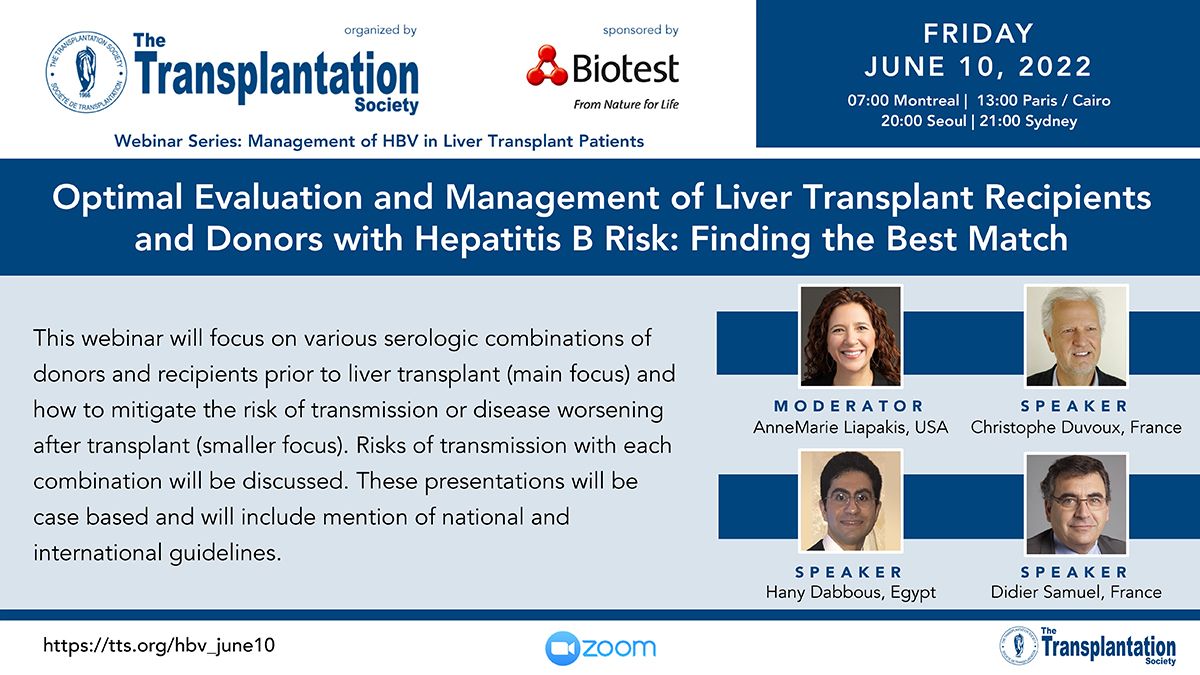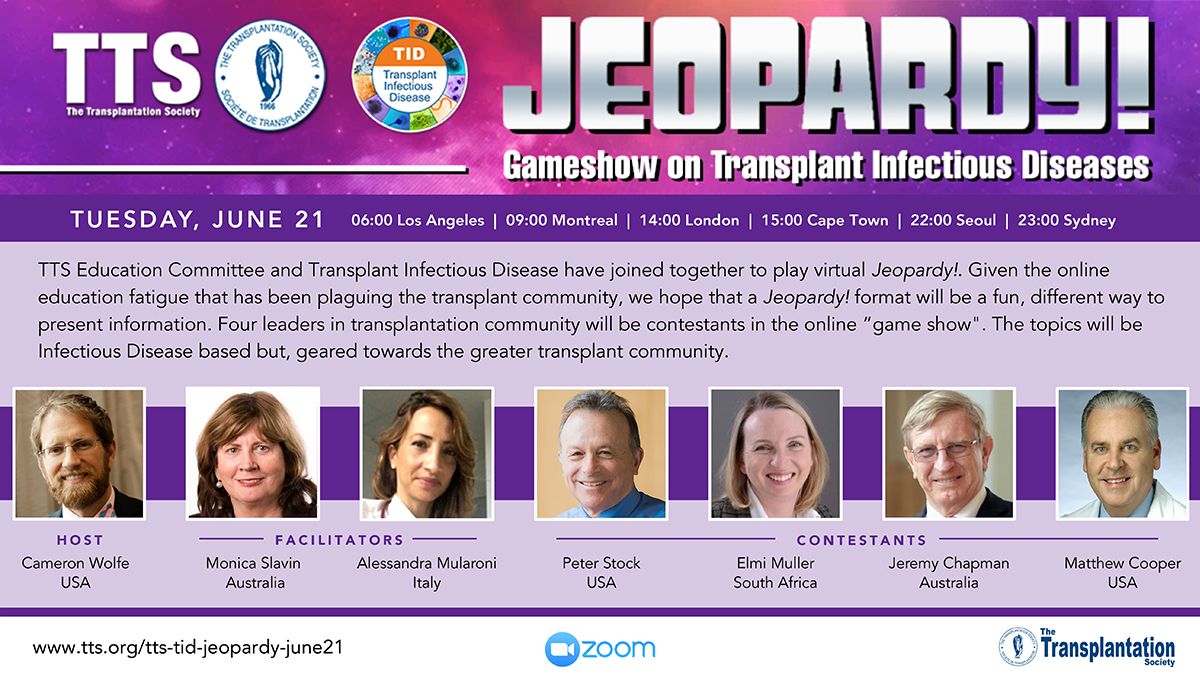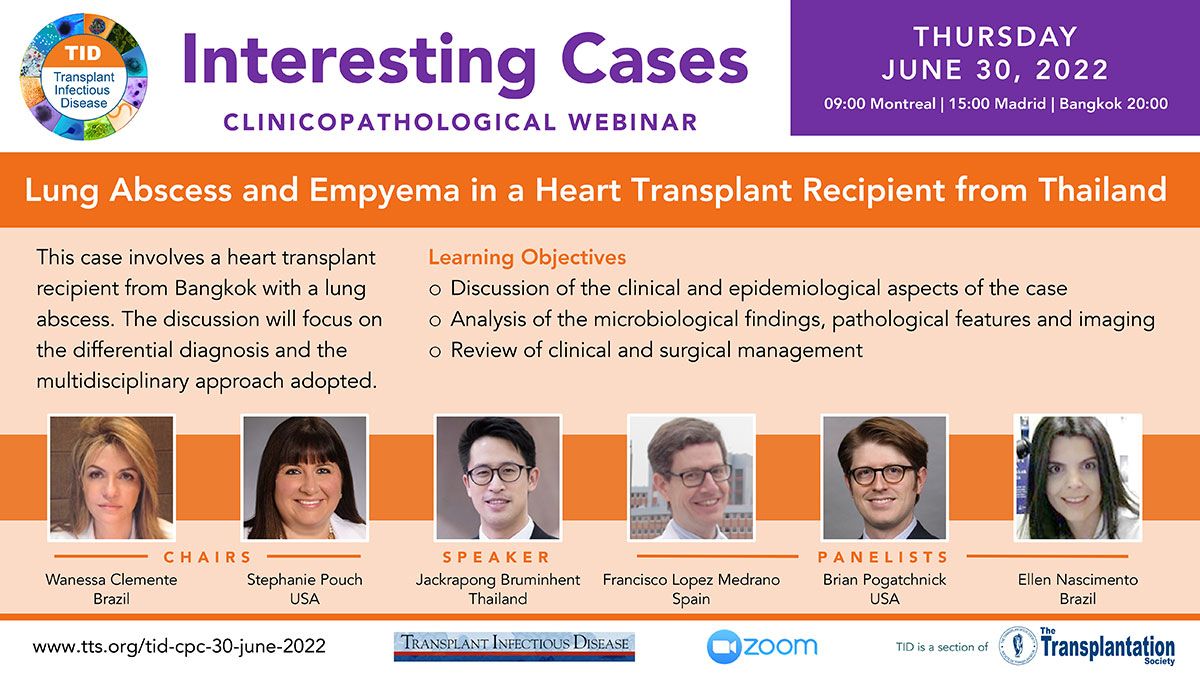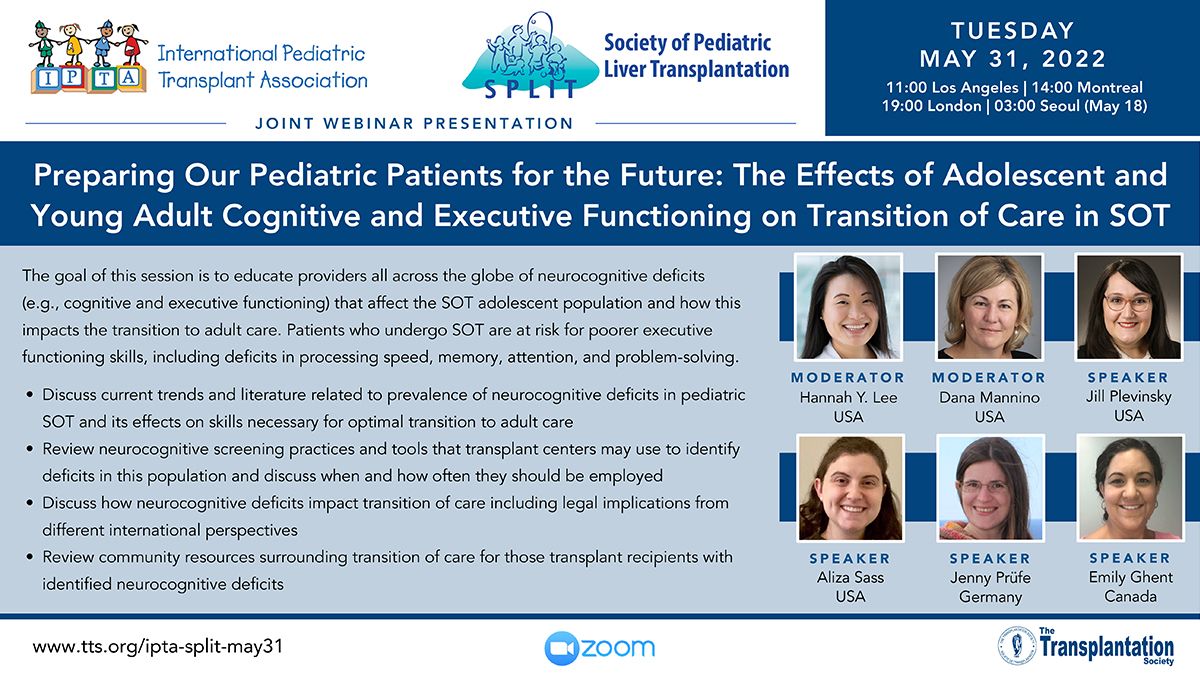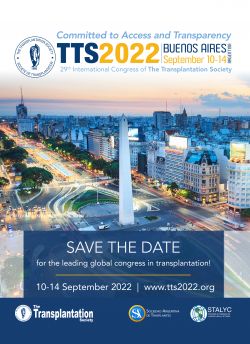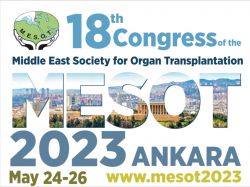
TTS 2022 Early Bird Deadline: June 10 - Register Today!

Important: Abstract submitters were sent their acceptance notices regarding their submissions last week!
Transplantation Direct - June 2022 Issue
JUST RELEASED - TRANSPLANTATION DIRECT - JUNE ISSUE
The June issue of Transplantation Direct is ready for viewing. Among the issues appearing in the area of kidney transplantation are the use of magnetic resonance elastography to predict outcomes related to renal stiffness, the effect of belatacept in relation to other immunosuppressants on development of cytopenias, HCV-infected donor kidney transplant consequences on potential liver complications, and a case of surgical salvage of renal artery dissection. In liver transplantation, the situations of occult constrictive pericarditis and transplantation for metastases of pseudopapillary tumor of the pancreas are examined. Turning to heart transplantation, the role of iNOS on diastolic function changes associated with hydrodynamic pressures is studied, and the effects of ATG induction intensity are revisited. In pediatrics, the influence of donor race/donor-recipient race-matching on outcomes in kidney transplantation are examined using OPTN data. On the organ donation and procurement front, there is a study on key factors in selecting DCDD kidneys for transplantation. For details on these and other articles, please visit our Transplantation Direct website for open access to the entire issue.
Transplantation Journals
Week's Most Downloaded Papers
Fate of CD8+: Cytotoxic or Suppressor T Cells in Antibody-mediated Rejection in Solid Organ Transplantation? #TBT
Solid organ transplantation has overcome major immunologic hurdles to become the success it is today. Significant advances in pretransplant diagnostics and immunosuppressive therapy reduced significantly serious acute rejections and improved graft survival.1 Despite the enormous efforts that were made, 1 key challenge remains unresolved: the prevention of chronic antibody-mediated rejection. T-cell dependent B-cell activation leads to the development of donor-specific antibodies, which have a significant impact on the long-term survival of allografts.Public Understandings of the Definition and Determination of Death: A Scoping Review #OpenAccess #TransplantTwitter
Advances in medicine and technology that have made it possible to support, repair, or replace failing organs challenge commonly held notions of life and death. The objective of this review is to develop a comprehensive description of the current understandings of the public regarding the meaning/definition and determination of death.Last Day to Nominate - Vice President By-election (2022-2026)
Member News - Professor Mehmet Haberal
Professor Mehmet Haberal presented with the Ihsan Doğramacı Family Health Foundation Prize by the WHO


Professor Mehmet Haberal was presented with the Ihsan Doğramacı Family Health Foundation Prize by the World Health Organization (WHO) Executive Board in recognition of his long-term and outstanding contributions to global public health.
The award ceremony was held on Friday, May 27th, 2022 at the Palace of Nations, during the Plenary of the Seventy-fifth World Health Assembly (WHA 75) in Geneva, Switzerland with the participation of delegations and Health Ministers from all WHO Member States.

We are exhibiting @ ATC 2022
If you are attending ATC 2022 please come and visit with our Executive Director Marcelle McPhaden!


Contact
Address
The Transplantation Society
International Headquarters
740 Notre-Dame Ouest
Suite 1245
Montréal, QC, H3C 3X6
Canada
Используйте Вавада казино для игры с бонусом — активируйте промокод и начните выигрывать уже сегодня!







